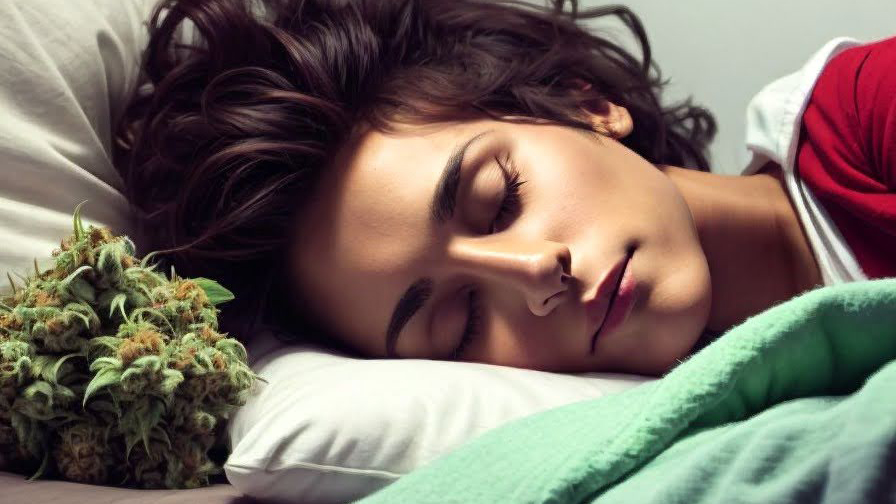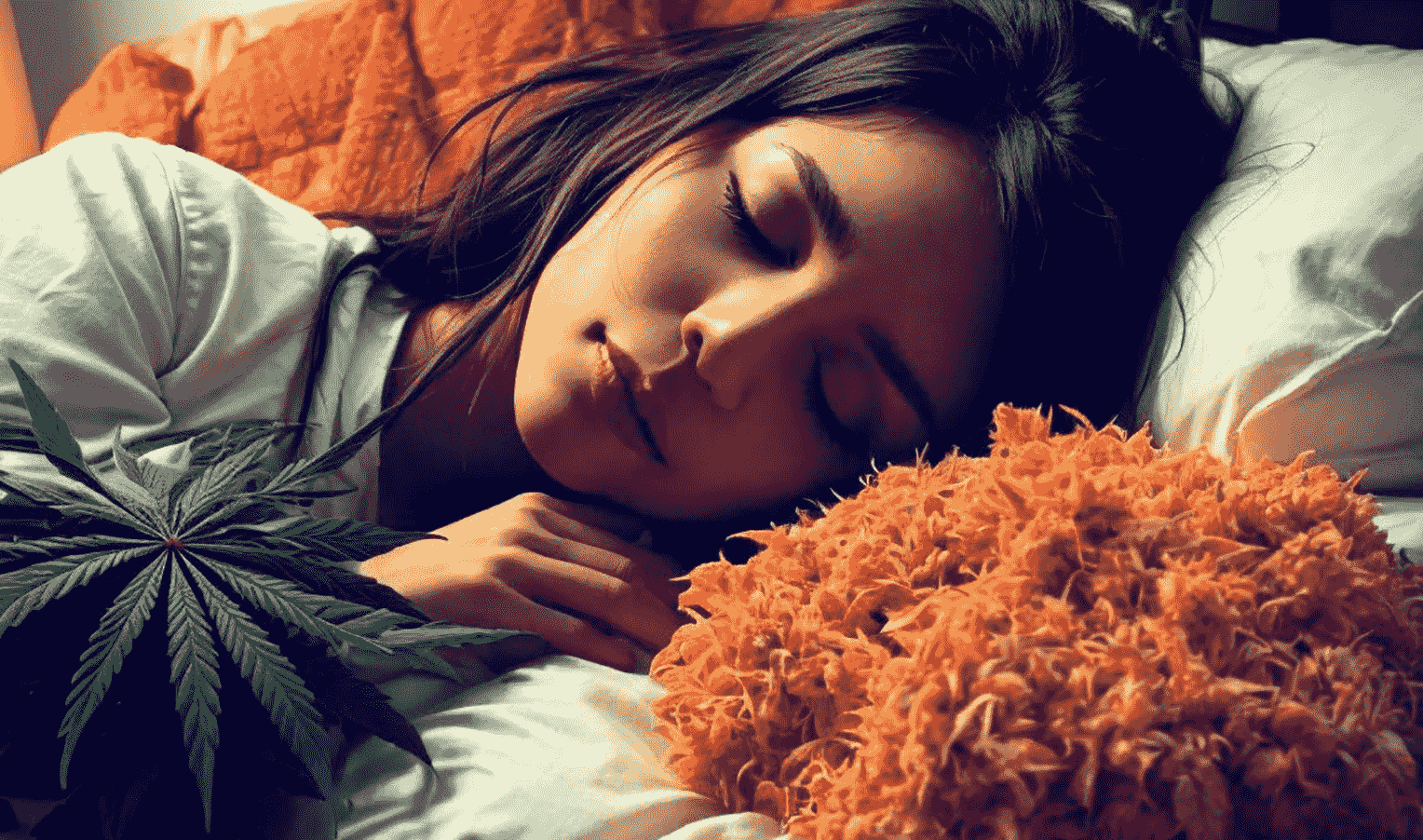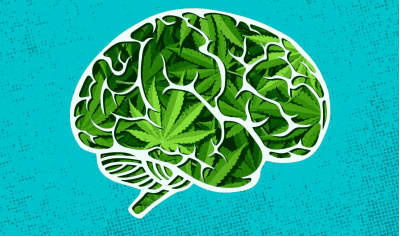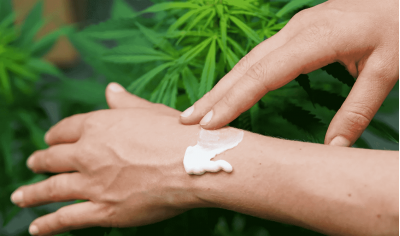Insomnia is a fairly common phenomenon. The need for sleep to maintain mental and physical health is universally recognized, but many adults face difficulties in achieving it. According to the American Sleep Association, between 50 and 70 million American adults experience symptoms of a sleep disorder. About 40 million Americans suffer from insomnia each year, and approximately 10 to 15 percent of the adult population experience chronic insomnia.
Thus, those who find it increasingly difficult to fall asleep should know that they are not alone. As the number of people suffering from sleep disorders increases, so does the interest in the controversial drug - cannabis. Many proponents of medical marijuana claim that marijuana is an effective treatment with minimal side effects for various sleep disorders.
Dr. Matt Roman, an expert in the treatment of marijuana, notes, "Marijuana is effective in restoring the natural sleep cycle that is so often disrupted in today's lifestyle." For those experiencing sleep disorders or difficulty falling asleep after a stressful day, cannabis may be an alternative choice. Marijuana's analgesic properties can bring relief to those suffering from chronic pain, while its anxiolytic properties can calm a stressed mind and body.
Research on the effect of cannabis on sleep
There are many varieties of marijuana, each with different effects, some energizing and others calming and sleep-inducing, depending on the ratio of different cannabinoids.
To begin, let's cover the basics of the scientific aspects of marijuana. This plant works thanks to the content of various cannabinoids, two of which are the main ones:
Cannabidiol (CBD): has many useful properties and does not have psychoactive effects, does not cause a "high effect".
Tetrahydrocannabinol (THC): the psychoactive cannabinoid responsible for the "high effect".
THC is also associated with inducing sleep, so a strain with more THC than CBD is chosen to achieve this effect.
A 2008 study indicates that the use of high-THC strains of marijuana can reduce the amount of REM (rapid eye movement) sleep, which in turn means less dreaming. For those suffering from PTSD, this can lead to fewer nightmares.
The theory suggests that reducing the time of dreams contributes to increasing the time in the state of "deep sleep", which is considered the most restorative for the body.
However, it's worth noting that REM sleep is important for healthy cognitive and immune functioning, and excessive use of high-THC marijuana can negatively affect sleep quality in the long term. Some studies even show that regular marijuana use can negatively affect sleep by altering sleep cycles.

Indica vs Sativa vs Hybrid
If the decision has been made to use marijuana in the treatment of insomnia, it is time to choose the appropriate variety. It is necessary to approach this as to the choice of tea - ordinary white or black, or a hybrid. There are three main types of strains you may encounter:
Indica - This variety is generally considered to be calming and relaxing.
Sativa - sativa varieties, as a rule, cause feelings of excitement, joy and a surge of energy.
Hybrids are combinations of indica and sativa, and their character can vary by grower.
Dr. Jordan Tischler, a Harvard-educated physician and expert in cannabis therapy, advises choosing a strain with less than 20 percent THC. In his opinion, if this indicator is exceeded, the dosage becomes difficult. Too much THC can also make a person feel lethargic and sleepy the next morning.
When it comes to achieving sleep, Tischler recommends turning to indica varieties.
How hemp is used to create a pleasant night's rest
Most people use marijuana by smoking it in a joint or pipe.
If a person does not like smoking for various reasons - whether it is to protect the lungs, whether it is the reluctance to smell the characteristic smell of marijuana, or whether it is other considerations, then they use vaping devices or take tinctures with a high THC content that drip under the tongue. Both of these methods are popular for achieving good sleep while using marijuana.
Dr. Tischler points out that it's important not to overdo it. Even a small amount can be excessive. As already mentioned, excess can lead to drowsiness the next morning. "If you need to repeat the reception in the middle of the night, it's not a problem," advises Tischler. "However, avoid reapplying if you wake up within four hours of when you should have gotten up."
When using cannabis, especially for sleep, it's important to choose your timing carefully. In this regard, Dr. Tischler rarely recommends tinctures, noting their variability regarding the onset of action. Start time can vary from one hour to two or three hours.
Also, the effects of cannabis can last longer than expected, sometimes causing drowsiness in the morning. "Due to the passage of cannabis through the gastrointestinal tract and processing in the liver, its duration of action can be extended to 8-12 hours."
Despite individual differences in physiology, it is usually preferable to use marijuana no later than an hour before bedtime. According to Tischler, this period is ideal because the cannabis will take effect within three to four hours, making it easier to fall asleep. "Thus, people don't feel the effect immediately after falling asleep, which can cause anxiety and disrupt sleep quality."

Before falling asleep, you need to remember the following.
Indeed, not all sleep aids have the same effect, and marijuana is no exception. "People who have had a heart attack or suffer from poor cardiovascular health should refrain from using marijuana because of the increased risk of myocardial infarction," warns Roman.
What's more, even though cannabis is often used to reduce anxiety, some people report that high THC strains can cause them to feel anxious or paranoid.
Marijuana research continues, and despite its legalization in some places and prohibition in others, it has demonstrated a variety of medicinal properties with fewer side effects compared to some other drugs.
Although there are studies related to the effects of alcohol on sleep, the effects of marijuana on sleep and general health need further study.
It is important to note that using marijuana as a sleep aid is a temporary solution. To achieve full and quality sleep, it is necessary to follow the rules of sleep hygiene and lead a healthy lifestyle.




Write a comment